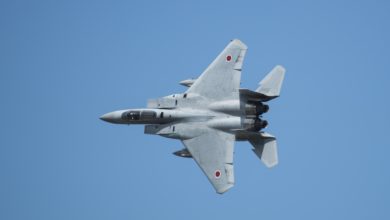South Korea and Japan to extend military intelligence-sharing agreement
South Korea will extend a critical military intelligence-sharing agreement with Japan, Japanese media reported on Friday, November 22, just hours before the pact was due to expire.
Japanese national broadcaster NHK and local news agency Kyodo reported that Seoul would reverse its decision to allow the pact to lapse at midnight and had communicated this to Tokyo.
Kim You-geun, a national security official at Seoul’s presidential Blue House, confirmed the General Security of Military Agreement (GSOMIA) would not be allowed to lapse at midnight.
“The Japanese government has expressed their understanding,” he said.
The pact had been due to become invalid at midnight, as a trade row sparked by historical disputes between the pair spiralled into one of their worst diplomatic spats in years.
Seoul and Tokyo are both major U.S. allies, democracies and market economies faced with an overbearing China and wayward, nuclear-armed North Korea.
But their relationship is heavily colored by territorial and historical disputes stemming from Japan’s bitterly-resented 35-year colonial rule over the peninsula, including the use of wartime sex slaves and forced labor.
The GSOMIA pact, signed in 2016, enabled the two to share military secrets, particularly over North Korea’s nuclear and missile capacity.
The United States had frequently urged its two main allies in the region to bury the hatchet, stressing that the only countries to benefit from the row were North Korea and China.
U.S. officials have admitted privately that poor relations between Seoul and Tokyo are complicating diplomacy in the region.
South Korea had promised to continue sharing secrets via the United States as a third party, but this had raised concerns about efficiency in an emergency situation.
Seoul had renewed the pact every year and its sudden decision to scrap it had come as a surprise as most thought the country would maintain security cooperation with Japan despite the ongoing row.
With reporting from AFP












